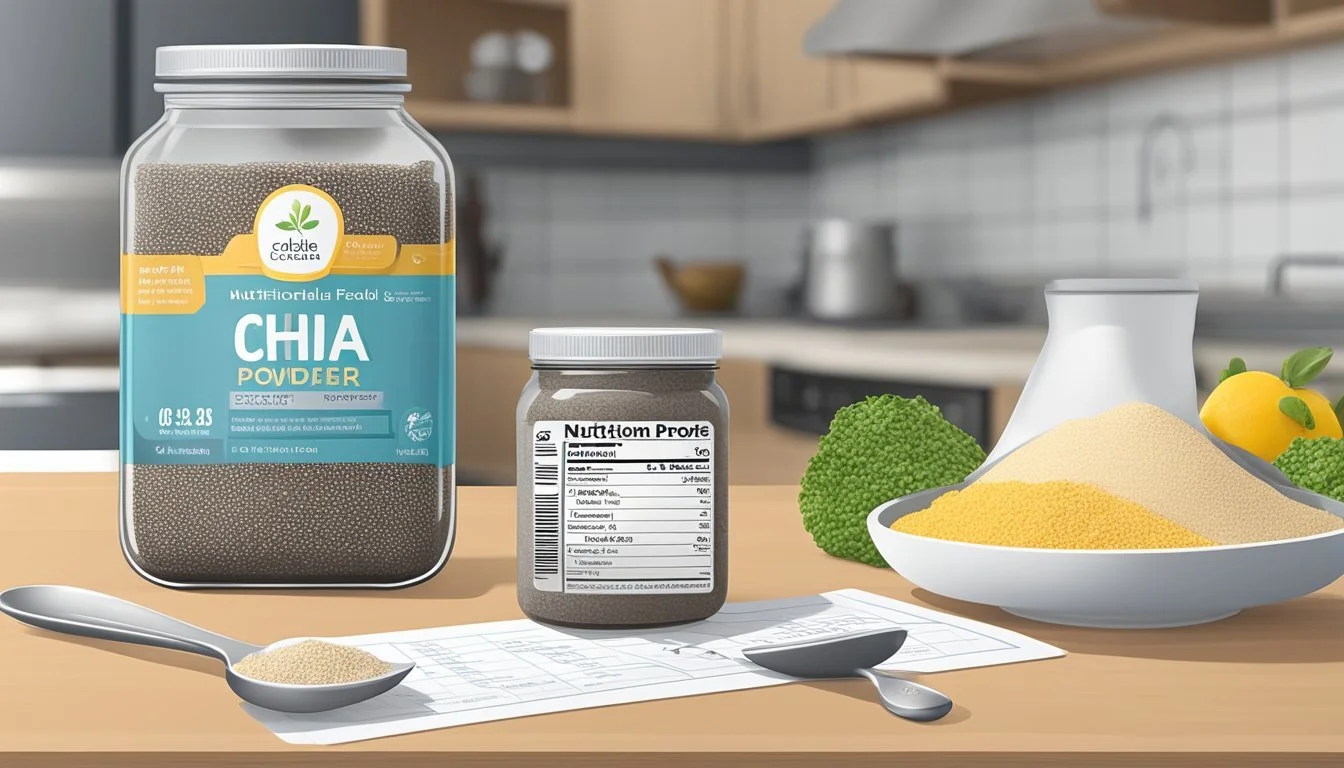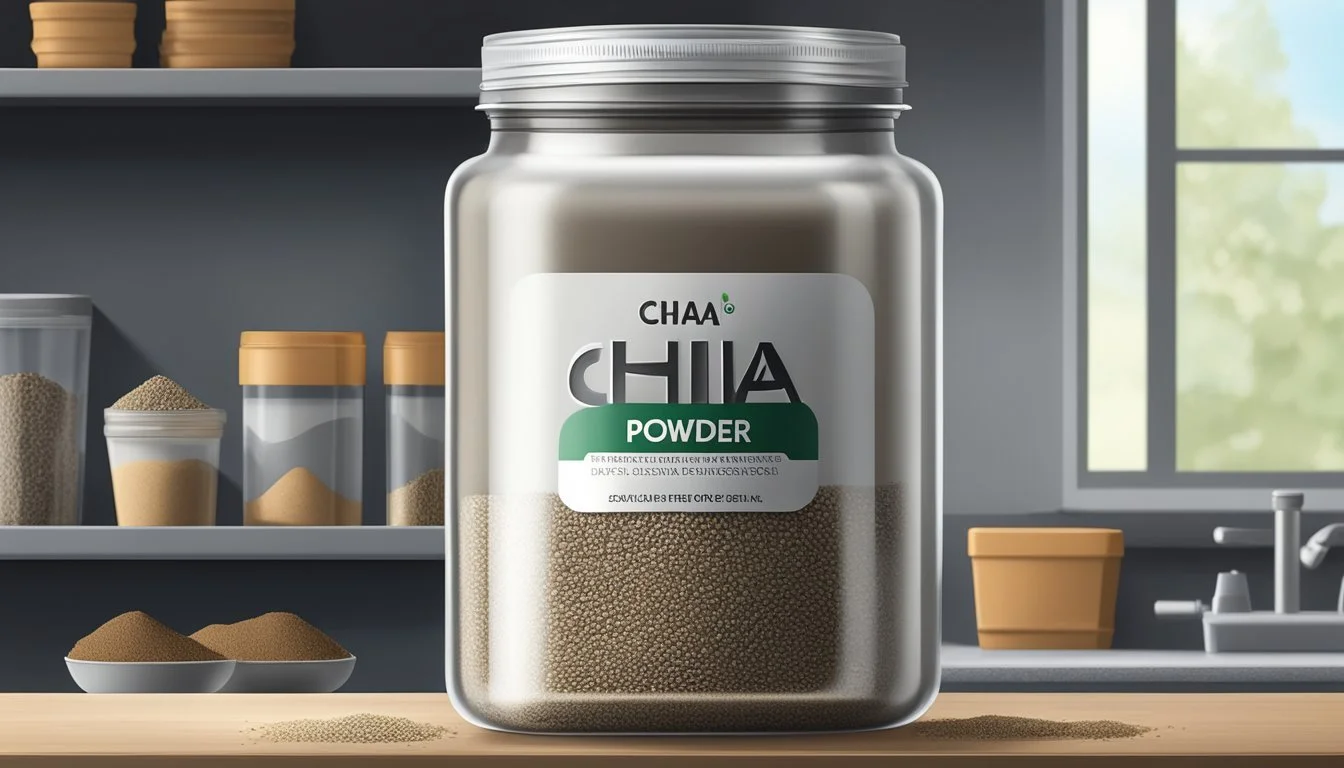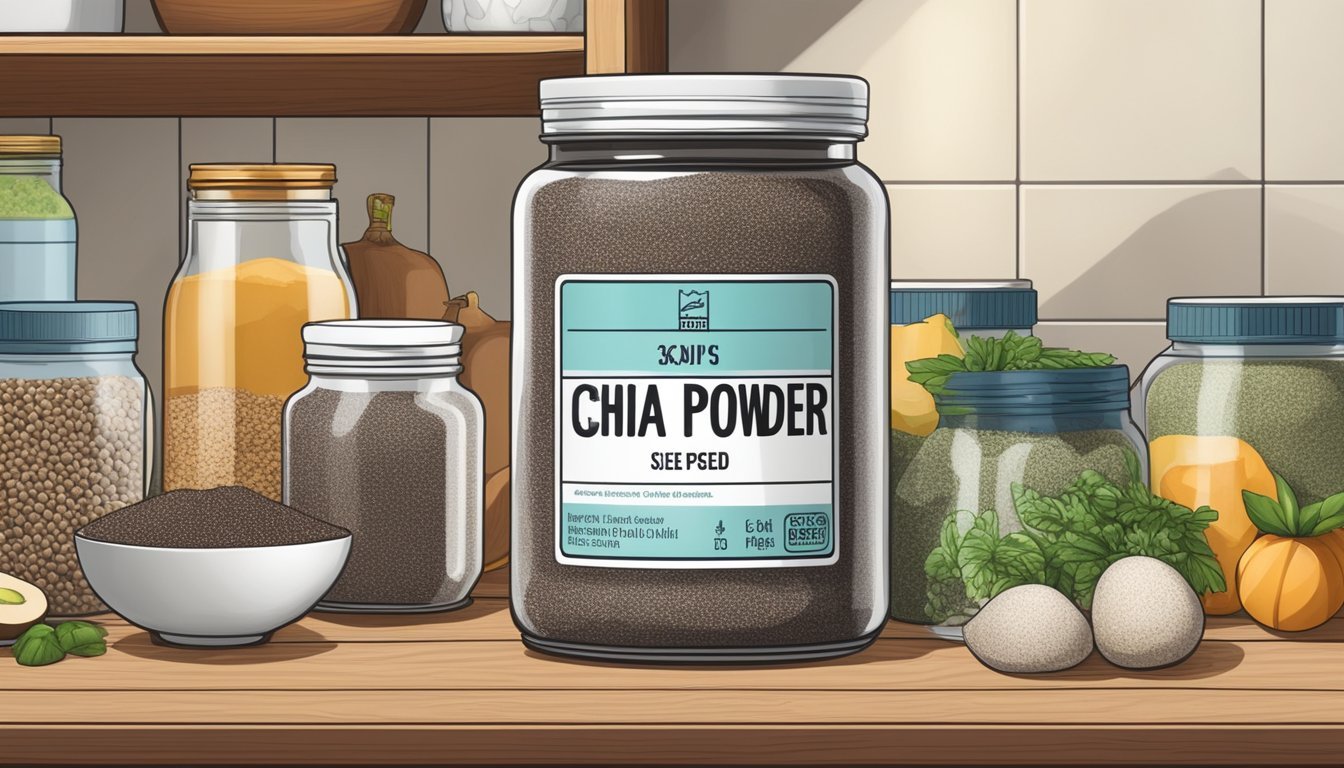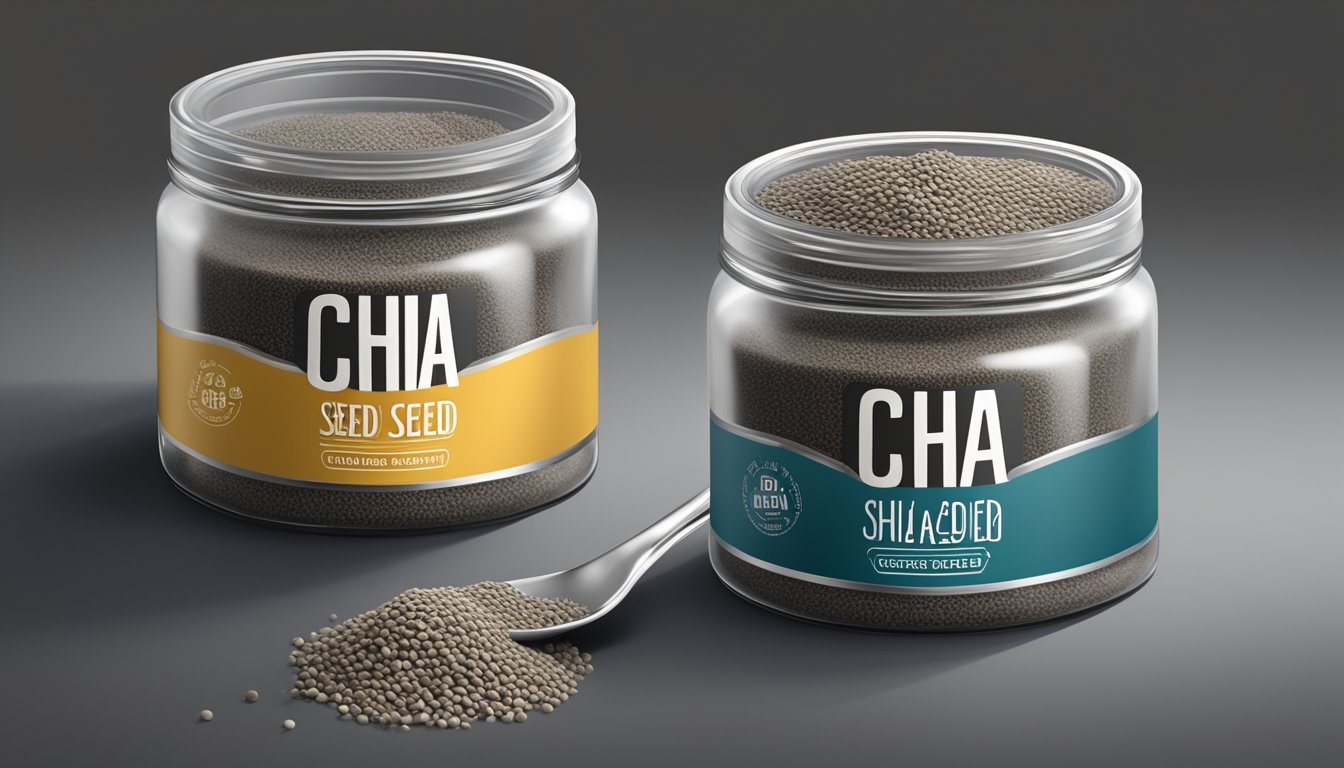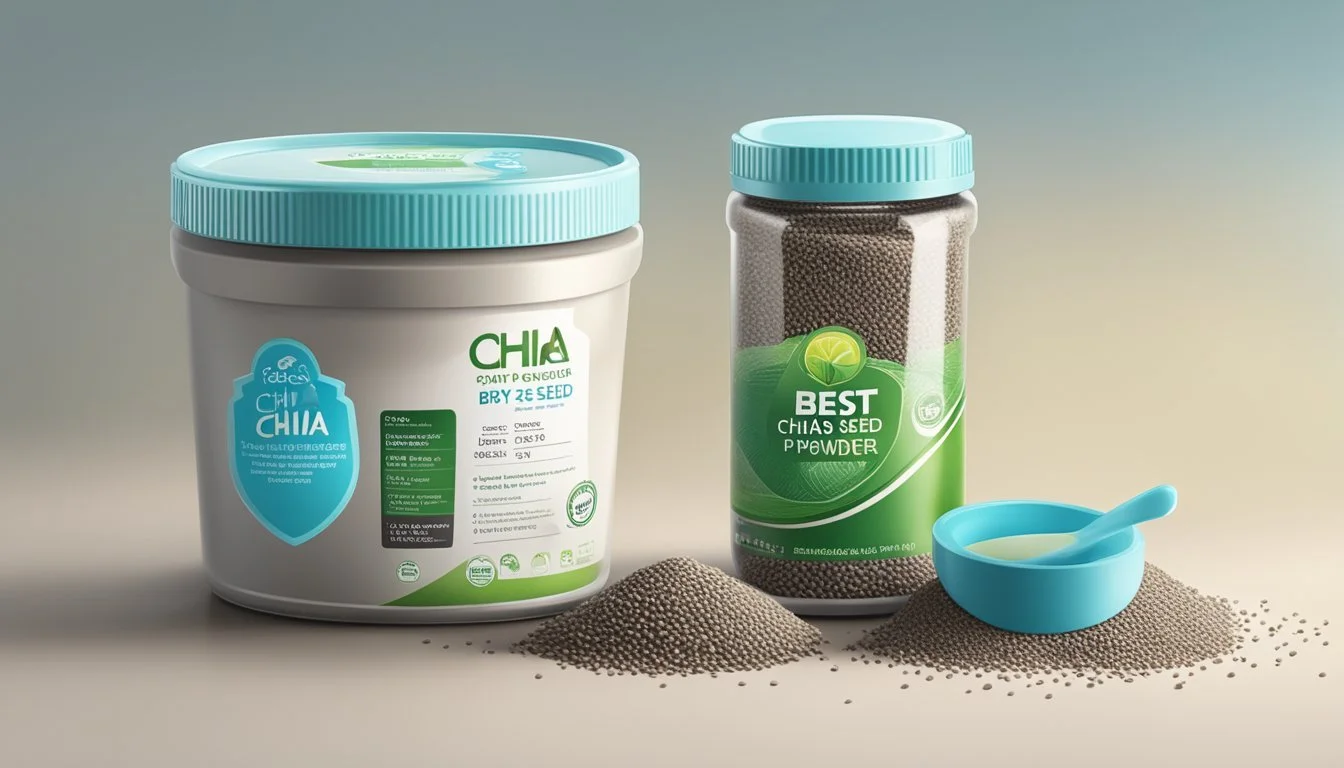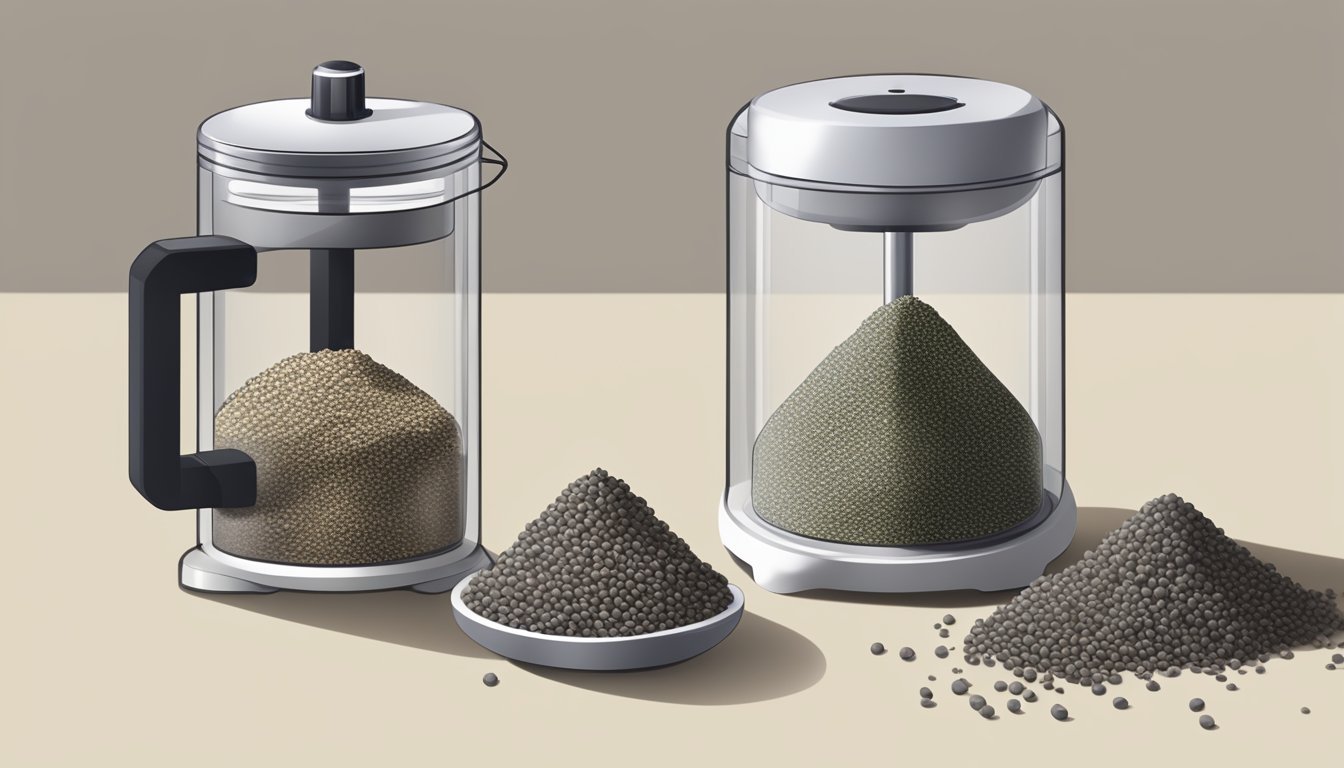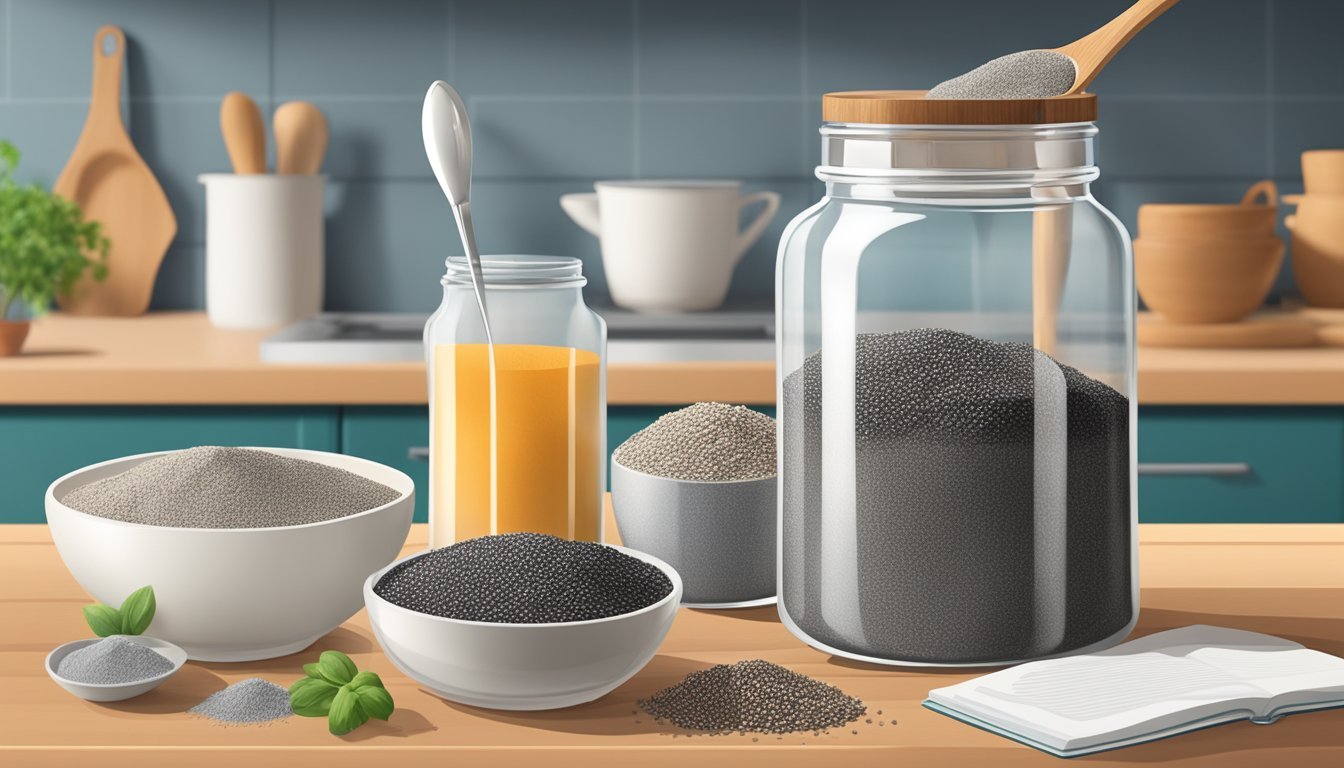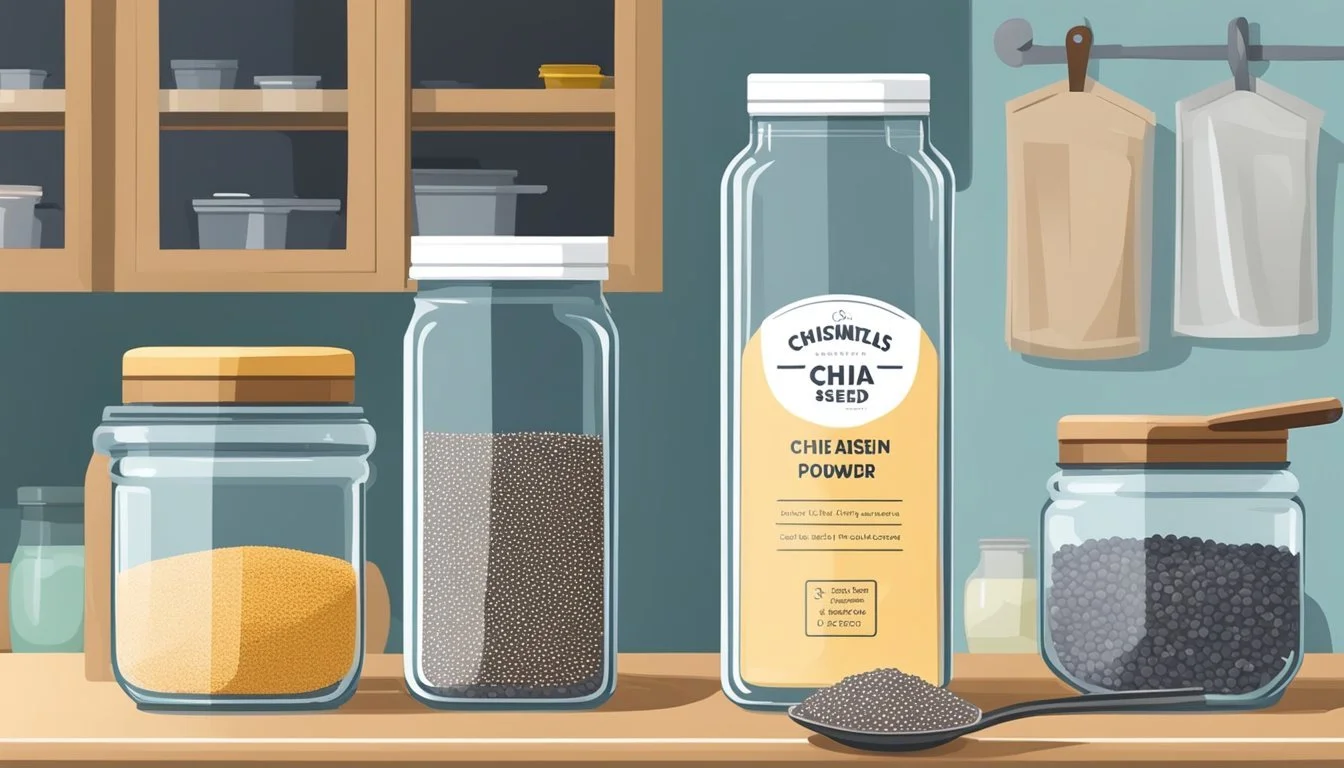How Long Does Chia Seed Powder Last?
Shelf Life and Storage Tips
Chia seed powder is a versatile ingredient favored for its nutritional benefits, including a rich content of omega-3 fatty acids, fiber, and protein. However, as with any natural product, understanding its shelf life is important to ensure its quality and freshness are maintained. Chia seed powder typically has a more limited shelf life compared to whole chia seeds due to the increased surface area after grinding, which makes the powder more susceptible to rancidity over time.
The shelf life of chia seed powder generally ranges from six months to two years, depending on various factors. Proper storage plays a crucial role in preserving the powder's quality; it should be kept in a cool, dark, and dry place, such as a pantry. Exposure to moisture and air can significantly reduce the shelf life, so it is imperative to store chia seed powder in air-tight containers to minimize these risks.
Temperature fluctuations and humidity are also vital considerations for prolonging the life of chia seed powder. As such, refrigeration can be a useful storage method to extend its usability, especially in warmer climates or during hotter seasons. Users should consistently check for any signs of spoilage, like a change in odor, color, or taste, to determine if the chia seed powder is still good to use.
Nutritional Profile of Chia Seeds
Chia seeds are a robust source of nutrients, offering a dense profile that benefits various aspects of health. They are highly regarded in nutrition communities for their content of fiber, omega-3 fatty acids, proteins, and a range of vitamins and minerals.
Macro and Micro Nutrients
Chia seeds are composed of approximately 46% carbohydrates, 34% fats, and 19% proteins. Here's a breakdown of their nutritional content per ounce (28 grams):
Calories: 138
Water: 6%
Carbohydrates: 12 grams
Fiber: 10 grams (83% of carbohydrates)
Fats: 9 grams
Omega-3 fatty acids: High amounts, predominantly in the form of alpha-linolenic acid (ALA)
Protein: 5 grams
Amino Acids: Contains all nine essential amino acids
Additionally, chia seeds contain a variety of micro-nutrients:
Calcium: Important for bone health
Phosphorus: Supports teeth and bone structure
Zinc: Aids in immune system functioning
Chia seeds are also a source of antioxidants, with qualities that may protect the body’s cells from free radicals.
Health Benefits
Digestive Health: The high fiber content in chia seeds contributes to digestive health by promoting regular bowel movements and feeding healthy gut bacteria.
Heart Health: Omega-3 fatty acids in chia seeds can contribute to the reduction of blood pressure and cholesterol levels, which is beneficial for heart health. These fatty acids, specifically ALA, may not be as beneficial as eicosapentaenoic acid (EPA) found in fish, but they still play a vital role in the diet.
Blood Sugar Levels: The combination of nutrients in chia seeds can help maintain stable blood sugar levels, making them suitable for individuals managing their dietary intake for conditions such as diabetes.
Bone Health: With appreciable amounts of calcium and phosphorus, chia seeds support the maintenance of bone density and overall bone health.
Compared to other seeds like flax seeds, chia seeds do not have to be ground to make their nutrients available to the body, which might make them a more convenient option in diets.
Determining Chia Seed Freshness
When assessing the freshness of chia seed powder, one must consider both its shelf life and signs of spoilage. Proper storage plays a pivotal role in maintaining quality, while a careful inspection for freshness indicators can prevent the consumption of rancid or moldy product.
Shelf Life and Expiration
Shelf Life: Chia seed powder typically maintains its quality for about six months when stored in a cool, dry place. If sealed and refrigerated, its freshness can extend beyond this period.
Expiration Date: While chia seed powder doesn't usually come with an expiration date, the packaging may include a best by date which suggests optimal consumption within two years of processing. Always check and adhere to this date for the best quality.
Identifying Spoilage
Aroma: Fresh chia seed powder should possess a subtle nutty scent. Any deviation, particularly a rancid smell, indicates spoilage.
Color and Taste: Spoilage can also manifest as a change in color, from its original off-white to a yellowish hue. An off or bitter taste is a tell-tale sign of decay.
Visual Clues: Look out for any mold or unusual spots on the chia seed powder. Should one observe any of these signs, they must discard the product immediately.
It is crucial to trust one's senses: if the chia seed powder exhibits any atypical scent, taste, or appearance, it should not be used. Remember, freshness equates to not only the enjoyment of taste but also the benefit of receiving the full nutritional value chia seeds offer.
Proper Storage Techniques
To maintain the quality and longevity of chia seed powder, implementing proper storage techniques is crucial. These prevent spoilage and preserve nutritional value.
Preventing Oxidation and Moisture
Chia seed powder is prone to spoilage when exposed to air and moisture. Storing it in airtight containers is essential to prevent clumping and oxidation. One can use vacuum-sealed bags or containers with tight-fitting lids to ensure that air exposure is minimized.
Temperature and Environment Control
Storing chia seed powder in a cool and dry place is imperative for its preservation. A pantry, cupboard, or any area away from heat sources and direct sunlight is ideal. For extended shelf life, one can store chia seed powder in the refrigerator or freezer, which will significantly defend against rancidity.
Container Choices
The choice of storage container greatly affects the longevity of chia seed powder. Glass containers, like mason jars, are preferred for their non-reactive nature and tight seal. Furthermore, they shield the powder from light, which can degrade the quality over time. Plastic containers should be BPA-free to prevent chemical leaching.
Storage Locations
Choosing the correct storage location within the home is key. For short-term use, a pantry or cupboard can suffice, provided it's a cool, dry place, free from drastic temperature changes. For long-term storage, placing the sealed chia seed powder in the freezer will protect it against bugs and other pantry pests while preserving its quality.
Understanding The Impact of Storage on Shelf Life
The longevity of chia seed powder largely hinges on its storage conditions. Whether kept refrigerated or in a pantry, or frozen can drastically alter its shelf life, and it's important to distinguish the nuances of each method.
Refrigerated vs. Pantry
Refrigerated Storage: When chia seed powder is stored in an airtight container in the refrigerator, it typically maintains quality for up to 1-2 years. The cool environment slows down the rate of oxidation and rancidity, which is particularly crucial once the package has been opened.
Unopened: Can last up to 2 years.
Opened: Oxidation affects longevity; shelf life might be reduced.
Pantry Storage: In a cool, dry pantry, chia seed powder lasts well but with a slight reduction in shelf life compared to refrigeration. Factors like humidity and temperature swings can negatively impact the powder.
Unopened: Approximately 1-2 years.
Opened: Regular exposure to air reduces the shelf life, encourage sealing tightly after each use.
Effects of Freezing
When chia seed powder is stored in the freezer, the cold temperatures can extend its shelf life beyond that of refrigeration and pantry storage. This can be particularly advantageous if bulk quantities are purchased or infrequent usage is anticipated.
Freezing:
Extends shelf life significantly, often to more than 2 years.
Freezer storage should be in airtight, moisture-proof containers to prevent freezer burn and moisture absorption.
It's imperative to note that chia seed powder's longevity is also contingent on the quality at the time of purchase, and these guidelines serve as general advice for the best possible preservation of its nutritional value and flavor.
Usage Scenarios and Shelf Life
Chia seed powder offers flexibility in various culinary scenarios, but shelf life varies depending on storage and usage. Its longevity and freshness are pivotal for maintaining nutritional benefits in recipes.
Recipes and Culinary Applications
Chia seed powder is used in a multitude of recipes, such as in baked goods for added fiber and omega-3 fatty acids. It serves as a thickening agent in dishes like chia pudding, which combines the powder with liquids to form a gel-like consistency. The powder is also a nutritious addition to yogurt, enhancing texture and nutrient profile. When stored properly in a cool, dry place, chia seed powder typically lasts for up to six months.
Recipe Type Application of Chia Seed Powder Shelf Life of Powder Baked Goods Integrated for nutrition and texture ~6 months Chia Pudding Acts as a thickener and main ingredient ~6 months Smoothies Adds thickness and nutrients ~6 months Yogurt Used for topping and mixed in for extra nutrition ~6 months
Adding to Liquid
Chia seed powder excels in its ability to absorb liquid, forming a chia gel when added to water, milk, or any other fluid. This gel can be consumed on its own, as a base for smoothies or even mixed into beverages. The powder's capacity to absorb liquids is what makes it useful for creating a satisfying texture in smoothies and soaked chia seeds. When adding chia seed powder to liquid, one should consume the resulting gel or mixture within a few hours for optimal freshness and to avoid spoilage.
Liquid Purpose of Adding Chia Seed Powder Recommended Consumption Time Water To create chia gel or for hydration Within 2-3 hours Milk (or plant-based alternatives) For chia pudding or smoothie base Within 2-3 hours Juices/Smoothies To thicken and add nutrients Within 2-3 hours
Maximizing Shelf Life Through Careful Use
Chia seed powder, when stored and handled optimally, can retain its nutritional quality and freshness for extended periods. Meticulous measuring and sealing after use are critical to maximizing the shelf life of chia seed powder.
Measuring and Handling
Using clean, dry utensils for measuring chia seed powder is essential to prevent moisture from entering the product. Moisture can lead to spoilage and reduce the shelf life significantly. They should always handle the powder with care and avoid the use of wet spoons or exposure to steam, which can introduce unwanted dampness.
Sealing After Use
After each use, it is imperative to seal the chia seed powder in an airtight container. Proper sealing restricts the entry of air, moisture, and contaminants, thus preserving the powder's freshness. For added protection, they should store the container in a cool, dark place, away from direct sunlight or any heat sources to ensure food safety and maintain the quality of the chia seed powder.
Safety and Health Considerations
When incorporating chia seed powder into one's diet, it is important to consider its shelf stability and potential health impacts. One should be aware of how to identify spoilage to ensure safe consumption, as well as the dietary implications of incorporating chia seed powder for overall health.
Dietary Considerations
Chia seeds are gluten-free and a rich source of nutrients that contribute to various health benefits. They are known to enhance satiety and support weight loss while also providing a high amount of antioxidants that may help neutralize free radicals and reduce inflammation. Regularly consuming chia seed powder can also contribute to lowering cholesterol levels, which is beneficial in preventing heart disease and other chronic diseases.
Gluten-Free: Safe for individuals with gluten intolerance.
Omega-3 Fatty Acids: Contribute to heart health.
Fiber: Aids in digestive health and promotes satiety.
Antioxidants: Combat oxidative stress and lower inflammation.
Signs of Spoiled Chia Seeds
One must be vigilant to detect any signs of spoilage in chia seed powder to prevent the consumption of rancid or otherwise compromised products. If the powder develops a rancid or off smell, it is an indicator that the healthy oils in the seeds have begun to degrade. Additionally, changes in color or the presence of clumps may suggest moisture contamination, which can lead to fungal growth and spoilage.
Odor: A nutty aroma is normal, while a sour or rancid smell indicates spoilage.
Appearance: Discoloration or clumping suggests spoilage.
Consumers should store chia seed powder in a cool, dry place, and preferably in an airtight container to maximize its shelf life and preserve its nutritional value.
Comparative Analysis with Other Seeds
In the realm of superfoods, seeds are celebrated for their dense nutrients. Chia seed powder distinguishes itself in its shelf life and nutritional profile when compared to other seeds.
Chia vs. Other Superfoods
Chia Seeds: Chia seed powder, derived from ground chia seeds, is a superfood known to last up to six months when stored properly. They are a rich source of omega-3 fatty acids, fibers, and antioxidants.
Shelf life: Up to 6 months
Nutritional highlights: Omega-3s, fiber, antioxidants
Flax Seeds: Flax seeds, similar to chia, are also considered superfoods and nutritional powerhouses with a shelf life that extends up to a year in powder form.
Shelf life: Up to 1 year
Nutritional highlights: Omega-3s, lignans (which have antioxidant qualities), fiber
Sunflower Seeds: As another superfood, sunflower seeds are rich in vitamin E and selenium. Sunflower seed powder, however, has a slightly shorter shelf life than chia powder.
Shelf life: Up to 4 months
Nutritional highlights: Vitamin E, selenium, protein
Each superfood seed brings a unique composition of nutrients and a different shelf life to the table, with chia seeds offering a middle ground in terms of longevity but a high nutrient profile.
Innovative Uses and Recipes
Chia seed powder is a versatile ingredient suitable for numerous culinary applications. They often employ it as a healthful addition to smoothies and beverages, providing a nutritional boost thanks to its rich omega-3 fatty acid, fiber, and antioxidant content.
In chia pudding, the powder acts as a thickener, offering a texture similar to tapioca. A simple recipe might combine:
1/4 cup chia powder
1 cup milk (dairy or plant-based)
Sweetener to taste (such as honey or maple syrup)
Mix the ingredients and refrigerate for a few hours, allowing the pudding to set.
Chia powder is also excellent in baked goods, where it can substitute for eggs. The formula for a chia "egg" includes 2 tablespoons of chia powder mixed with 1/3 cup of water, left to thicken for about 10 minutes before adding to recipes such as cookies, muffins, or cakes.
Cooking techniques benefit from chia powder as well. It can serve as a binding agent in veggie burgers or meatballs, thickener in soups and stews, or as a grain-free coating for fried dishes.
Recipe Suggestions with Chia Powder
1 cup spinach
1 banana
1 tablespoon chia powder
1/2 cup almond milk
Ice cubes
Hearty Veggie Burger:
2 tablespoons chia powder (as binder)
1 cup cooked black beans
1/2 cup cooked quinoa
Seasonings (onion powder, garlic powder, salt, pepper)
2 tablespoons of your favorite BBQ sauce
Creatively incorporating chia seed powder in dishes adds both nutritional value and texture. Experimentation in the kitchen can lead to discovering its full potential in a wide array of recipes.
Tips for Buying and Storing
When purchasing chia seeds, the buyer should prioritize seed quality and packaging. Proper storage extends the chia seed powder's shelf life, ensuring it remains potent and safe for consumption.
Selecting High-Quality Chia Seeds
Quality is paramount when buying chia seeds. Shoppers should look for seeds that are uniform in color and free from any stones or debris. High-quality chia seeds should not have any musty smell, which can indicate moisture contamination and potential spoilage.
Evaluating Packaging and Labels
The packaging can significantly influence the shelf life of chia seed powder. Consumers are recommended to check for airtight packaging to prevent moisture and pest intrusion. It is essential to verify the best by date on the label, although this is not an expiration date; it suggests when the product may start to lose its potency. Once opened, transferring chia seed powder to a mason jar or an airtight container and storing it in a cool and dry place ensures freshness for longer periods.
Chia Seeds in Special Diets
Chia seeds are recognized for their beneficial role in diverse diet plans, particularly for those focused on health improvement. Their high content of omega-3 fatty acids and dietary fiber contributes to various health benefits including weight management and heart health.
Incorporation in Health-Conscious Diet Plans
Diet and Weight Loss: Individuals aiming for weight loss may incorporate chia seed powder into their diet as it is believed to induce satiety. This feeling of fullness can potentially reduce snacking and overeating. The powder’s fiber content is crucial in promoting digestive health, which is supportive of weight management goals.
Cholesterol Management: Integrating chia seed powder in daily intake can be advantageous for those monitoring their cholesterol levels. The omega-3 fatty acids present have been associated with the ability to help maintain healthy cholesterol levels, which is a key element in preventing cardiovascular diseases.
Heart Health: For people prioritizing heart health, chia seeds provide alpha-linolenic acid, a type of omega-3 fatty acid. Regular consumption of these nutrients may contribute positively to cardiovascular health. The incorporation of chia seed powder into the diet can be an easy and efficient way to access these heart-healthy fats.
Omega-3 Fatty Acids: Omega-3s are essential for brain health, and chia seed powder is a plant-based source of these fats, making it a suitable option for vegetarians and vegans looking to enrich their diets with these important nutrients.
Dietary Fiber: The high fiber content in chia seed powder aids in the maintenance of bowel health, regulation of blood sugar levels, and the promotion of a feeling of fullness, all beneficial for those on health-conscious diet plans.
In summary, people emphasizing a healthy diet and lifestyle may find chia seed powder a versatile and nutritious addition to their food regimen, supporting various health objectives from weight management to heart health maintenance.


